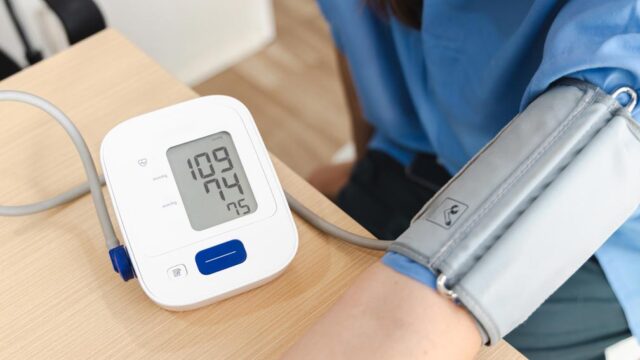Advertisment
What point-of-care testing for vitamin D levels tells us

The pilot study of pharmacist-led vitamin D point-of-care testing showed that the procedure was feasible in routine practice and, surprisingly, that more than half of participants had insufficient vitamin D levels, according to clinical community pharmacist Dr Catherine Anne Busuttil.
Following the selection and validation of the vitamin D point of care test (POCT) a framework for the service, comprising a standard operating procedure together with appropriate documentation, was prepared. This was piloted in a community pharmacy with 80 participants. Some 49 participants had ‘insufficient’ and eight had ‘deficient’ vitamin D levels. Further analysis showed that “participants suffering from chronic conditions were more likely to have their vitamin D levels tested – and those suffering from metabolic disorders being even more likely to have deficient or insufficient vitamin D levels – and this correlation had a p value of 0.026 showing its significance”, explains Dr Busuttil.
The test procedure itself involves collecting approximately 20 microlitres of finger-stick whole blood. This is transferred to the test cassette and the result is obtained after 10 minutes by comparing the intensity of the line on the test cassette to the colour card provided with the POCT kit. “It is crucial that the test is carried out in a well-lit area for clear colour comparison”, notes Dr Busuttil.
“In Malta serum [25-hydroxyvitamin D (25D)] reference ranges follow those proposed by the Endocrine Society in the USA. Their guidelines state that 30 nanograms per millilitre are considered adequate levels, between 20 to 30 nanograms per millilitre are regarded as insufficient levels and below 20 nanograms per millilitre are deemed deficient”, she explains.
Despite the study being carried out in Malta which has a Mediterranean climate, 71 percent of participants had deficient or insufficient levels of vitamin D. “Participants who are aware that exposure to UVB rays is essential to vitamin D photosynthesis are more likely to spend time in the sun”, says Dr Busuttil. However, prolonged sun exposure is not recommended as this can lead to sunburn and DNA damage, she adds. There has also been an occupational shift over recent years where the majority of the general population works from offices or their homes and therefore sun exposure is restricted. Despite the fact that 38 participants were taking vitamin D supplementation, only 23 participants were found to have sufficient levels of vitamin D and there was no association between the two variables when statistical analysis was carried out. Dr Busuttil explains: “This may be attributed to underdosing of vitamin D supplementation, short duration of consumption of the required dose of vitamin D and issues related to vitamin D malabsorption. Finally, half of the participants tested stated that they suffered from a metabolic disorder. Metabolic disorders considered included hypertension, hypercholesterolemia, hypothyroidism, obesity and type 2 diabetes. Statistical significance was observed when the occurrence of vitamin D hypovitaminosis and the presence of a metabolic disorder were correlated, giving a p value of 0.026, so there is quite a large significance there”.
In Malta the recommended daily dose of vitamin D supplementation is 800 to 2,000 International Units (for a healthy individual with no other conditions).
If vitamin D POCT were routinely available from a community pharmacy, the price would depend on the type of test kit used. The semi-quantitative test kit used in the study costs the community pharmacy €6 per test. A quantitative test costs approximately €14 to €27 – with an additional cost of €3,000 for an analyser. Total costs would need to take into account the costs of consumables, wastage and pharmacists’ time, Dr Busuttil points out.
The next phase of this study will involve evaluation of the implementation of the Vitamin D POCT service within a community pharmacy. “However, I would just like to highlight that it is our obligation as community pharmacists to educate and to offer these kind of testing services within our pharmacy to highlight our role to prevent and protect the patients within our community and to provide individualised pharmaceutical care”, says Dr Busuttil.
About Catherine Anne Busuttil
Catherine Anne Busuttil holds a Master’s degree in Pharmacy and a Doctorate (PharmD) of Pharmacy. As part of her doctoral studies at the University of Malta she undertook research in the area of vitamin D POCT under the supervision of Dr Francesca Wirth and Professor Lillian Azzopardi. She now contributes to the department as a teacher-practitioner for second year pharmacy students in POCT practical sessions and for postgraduate students on community pharmacy rotations.
Read and watch the full series on our website or on YouTube.









